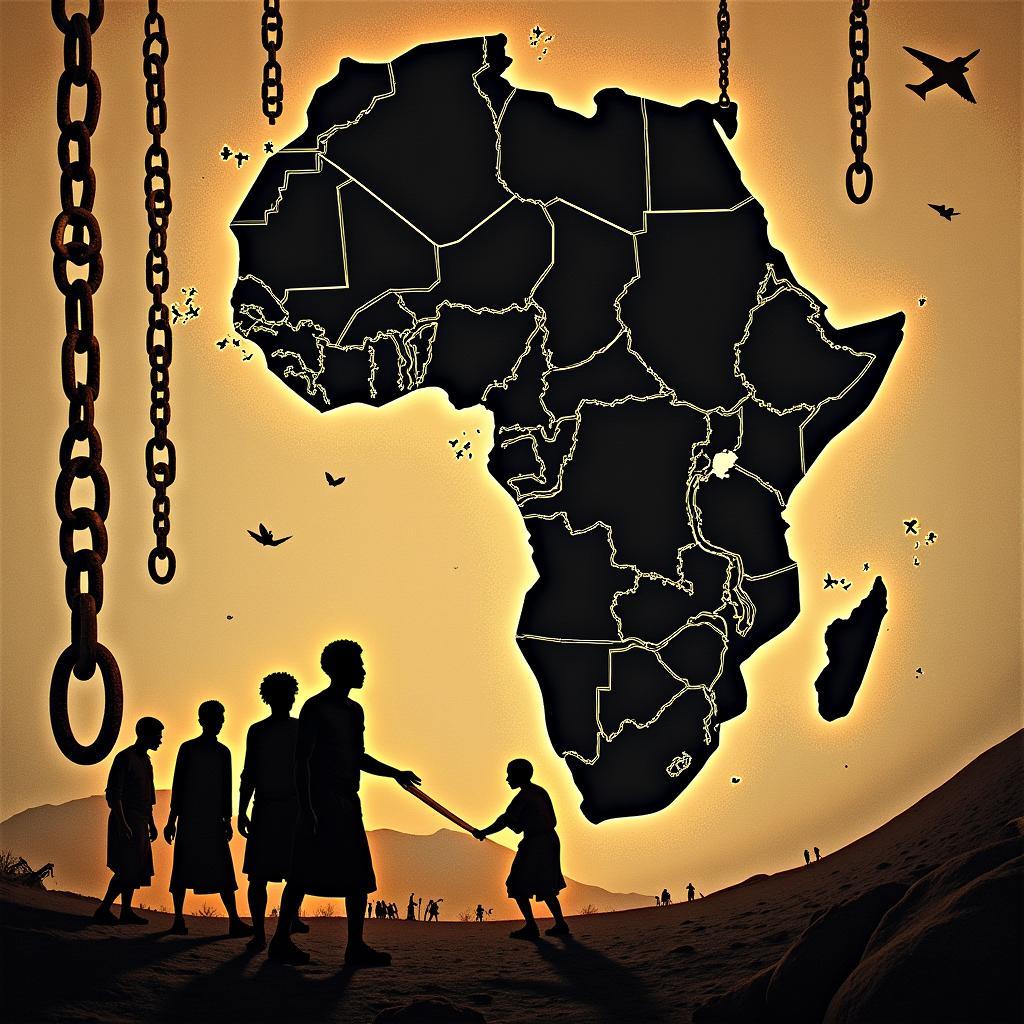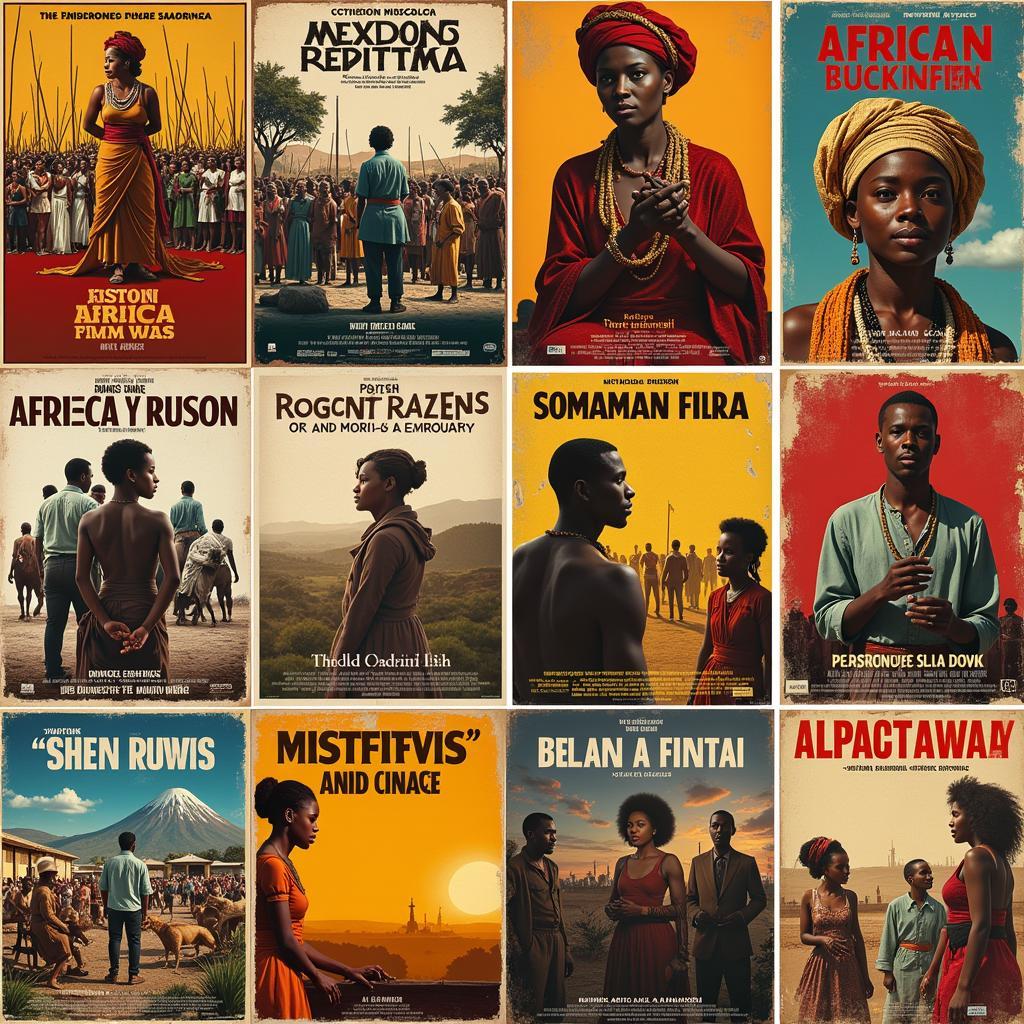African Holocaust Movie: Confronting History Through Cinema
The term “African Holocaust Movie” evokes a complex range of emotions and prompts important conversations about representation, memory, and the power of storytelling. While the phrase itself might not be widely recognized, it speaks to a growing desire to see African historical experiences portrayed on screen with the same depth and nuance often afforded to other global tragedies.
Reclaiming the Narrative: Why “African Holocaust Movie” Matters
The use of “holocaust” in this context often refers to the transatlantic slave trade and its enduring legacy. This centuries-long atrocity saw millions of Africans forcibly displaced, enslaved, and subjected to unimaginable cruelty. While the term sparks debate about its appropriateness, it reflects a desire to acknowledge the magnitude of suffering and its lasting impact on the African diaspora.
 African Holocaust Film Poster
African Holocaust Film Poster
Films like “Sankofa” (1993) and “Amistad” (1997) have bravely tackled this period, offering glimpses into the horrors endured and the resilience of those who resisted. However, there’s a pressing need for more diverse and nuanced narratives that move beyond simplistic portrayals of victimhood.
Beyond the Slave Trade: Exploring the Diversity of African Historical Experiences
The African continent’s history is rich and diverse, encompassing empires, kingdoms, innovations, and cultural exchanges that pre-date and transcend colonialism and slavery. An “African holocaust movie” can also refer to films that shed light on other tragic chapters, such as:
-
The Rwandan Genocide: Movies like “Hotel Rwanda” (2004) and “Sometimes in April” (2005) brought international attention to the 1994 genocide against the Tutsi, highlighting the human cost of hatred and political manipulation.
-
Colonial Brutality: Films like “Lumumba” (2000) and “The Battle of Algiers” (1966) expose the violence and exploitation inflicted during colonial rule, showcasing the struggle for independence and self-determination.
-
Contemporary Conflicts and Human Rights Abuses: Movies like “Beasts of No Nation” (2015) and “Timbuktu” (2014) offer harrowing portrayals of child soldiery, terrorism, and the devastating impact of war on communities.
The Power of Film: Education, Empathy, and Action
African holocaust movies, regardless of the specific historical event they depict, have the power to:
- Educate audiences: By presenting historical facts and personal stories, these films can challenge preconceived notions and foster a deeper understanding of the complexities of the past.
- Build empathy and understanding: By connecting with characters and their experiences, viewers can develop a greater appreciation for the human cost of these tragedies and the importance of preventing future atrocities.
- Inspire action: By raising awareness and prompting reflection, these films can encourage viewers to engage in dialogue, support social justice initiatives, and advocate for change.
 Diverse Representation in African Cinema
Diverse Representation in African Cinema
Looking Forward: The Future of “African Holocaust Movies”
As the global film industry evolves, there’s a growing demand for authentic, nuanced stories from the African continent. This presents a unique opportunity for filmmakers to:
- Collaborate with historians and communities: Ensuring accuracy and sensitivity requires working closely with experts and those whose histories are being portrayed.
- Embrace diverse perspectives and genres: From historical dramas to documentaries and animated films, there are countless ways to approach these sensitive subjects.
- Prioritize African voices and talent: Empowering African filmmakers and actors is crucial to telling these stories authentically and respectfully.
The term “African holocaust movie” might be debated, but it reflects a vital conversation about how cinema can grapple with difficult histories, foster empathy, and ultimately contribute to a more just and equitable future.


